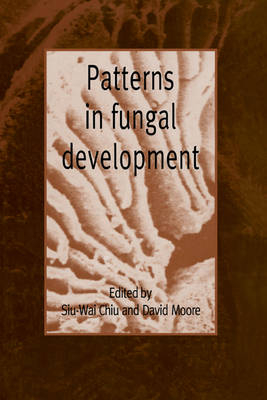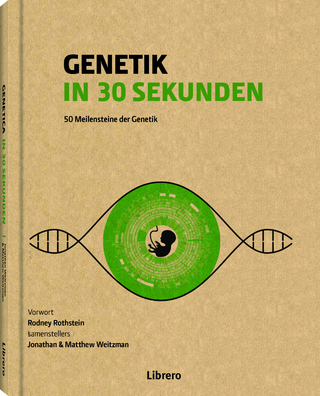
Patterns in Fungal Development
Seiten
1996
Cambridge University Press (Verlag)
978-0-521-56047-4 (ISBN)
Cambridge University Press (Verlag)
978-0-521-56047-4 (ISBN)
This account of the developmental biology of fungi considers whether evidence exists for the action of pattern forming mechanisms in the development of fungal structures, similar to those which operate in animal and plant systems.
The theory of pattern formation, assumed to be applicable to all multicellular organisms, has been developed largely through the study of animal, and to a lesser extent, plant systems. Fungi, members of the third major kingdom of eukaryotes, have not featured in these studies, although much research of fungal morphology has been undertaken with taxonomic intentions. This first account of the developmental biology of fungal morphogenesis considers whether evidence exists for the action of pattern forming mechanisms in the development of fungal structures. Chapters on the fruit body, on a range of aspects of the hyphae and the mycelium, and on genetic control and nuclear events in morphogenesis provide insights into the mechanisms used in fungal construction. Aimed at developmental biologists as well as mycologists, the terminology has been kept as simple as possible to make the volume accessible to the widest audience.
The theory of pattern formation, assumed to be applicable to all multicellular organisms, has been developed largely through the study of animal, and to a lesser extent, plant systems. Fungi, members of the third major kingdom of eukaryotes, have not featured in these studies, although much research of fungal morphology has been undertaken with taxonomic intentions. This first account of the developmental biology of fungal morphogenesis considers whether evidence exists for the action of pattern forming mechanisms in the development of fungal structures. Chapters on the fruit body, on a range of aspects of the hyphae and the mycelium, and on genetic control and nuclear events in morphogenesis provide insights into the mechanisms used in fungal construction. Aimed at developmental biologists as well as mycologists, the terminology has been kept as simple as possible to make the volume accessible to the widest audience.
1. Inside the developing mushroom - cells, tissues and tissue patterns D. Moore; 2. A new model for hyphal tip extension and its application to differential fungal morphogenesis B. Johnson, G. Calleja and B. Yoo; 3. Pattern formation and development of the fungal mycelium K. Klein; 4. The genetics of morphogenesis in Neurospora crassa P. Vierula; 5. Nuclear changes during fungal development Sui-Wai Chiu; 6. Experimental approaches to the study of pattern formation in Coprinus cinereus A. Bourne, Sui-Wai Chiu and D. Moore; 7. Control of growth and patterning in the fungal fruiting structure - a case for the involvement of hormones L. Novak-Fraser; 8. Patterns in fungal development - fruiting patterns in nature R. Watling; Index.
| Erscheint lt. Verlag | 13.9.1996 |
|---|---|
| Zusatzinfo | 20 Tables, unspecified; 27 Halftones, unspecified; 36 Line drawings, unspecified |
| Verlagsort | Cambridge |
| Sprache | englisch |
| Maße | 157 x 235 mm |
| Gewicht | 522 g |
| Themenwelt | Naturwissenschaften ► Biologie ► Genetik / Molekularbiologie |
| Naturwissenschaften ► Biologie ► Mykologie | |
| ISBN-10 | 0-521-56047-0 / 0521560470 |
| ISBN-13 | 978-0-521-56047-4 / 9780521560474 |
| Zustand | Neuware |
| Haben Sie eine Frage zum Produkt? |
Mehr entdecken
aus dem Bereich
aus dem Bereich
50 Meilensteine der Genetik
Buch | Hardcover (2022)
Librero b.v. (Verlag)
9,95 €


